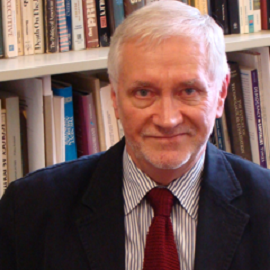Thank you for your message. The IPPA team will get back to you shortly. You first need to login here.

Courses
Full day
Philippe Zittoun(University of Lyon)
How to Study the Politics of Policy Processes
This course focuses on how to study Policy Processes by mobilising different qualitative perspectives, from Constructivist to Pragmatic Approaches. Its main objective is to identify and discuss how we can empirically and methodologically grasp the policy process by observing and defining the struggles around the problem and also around the meaning of proposed solutions. Special attention will be paid to the building of coalitions, existing powerful dimensions, and the different challenges and solutions encountered along their path. Why do some solutions manage to make it to the decision-making process whereas others fail? Under what conditions and at what price do solutions make it to the solution agenda? How do some actors succeed in "domesticating" "wicked" problems? First, this course will explore the career of a public problem, from emergence to agenda setting. Second, it will explore the career of the proposal as it passes through different arenas such as bureaucracy, the advice system, and the political arena. Policy problems and solutions will be observed on the basis of three games: the game of language where a statement takes on meaning and becomes a problem/solution, the game of actors where this definition is stabilized through coalition building, and the game of power through the formation of multiple levels of power. The course will draw on the studies undertaken by key authors in the field and will explore how they perceive the political dimension in the policy process. It will also propose different concepts and approaches to help grasp the policy process from a different perspective.
Frank Fischer(Humboldt University in Berlin)
Understanding policy processes: theoretical and methodological perspective
This course examines the theory of the public policy process, with an emphasis on political, conceptual and methodological issues. It begins with an exploration of the evolution of theory development in public policy studies, including an emphasis on the interplay among competing analytical criteria--efficiency, equity and legitimacy—in policy decision processes. The discussion then turns to an investigation of each phase of the policymaking process, from the politics of agenda setting (emphasizing interest group competition, parties, movements and the media), policy formulation (focused on policy advice, cost-benefit analysis and epistemic policy communities), policy decision-making and adoption (concerned with state imperatives and models of power), implementation (conerned with program design, bureaucratic politics, and program recipients), and policy evaluation and learning (comparing technocratic versus constructivist approaches). Along the way, the role of the role the multiple streams model, the advocacy coalition framework, the institutional perspective, and the discourse-deliberative approach are considered. In the process, the course pays special attention to the kinds of knowledge and inquiry appropriate to each phase of the policy process. The methodological debates between quantitative and qualitative approaches that this gives rise to are also explored.






